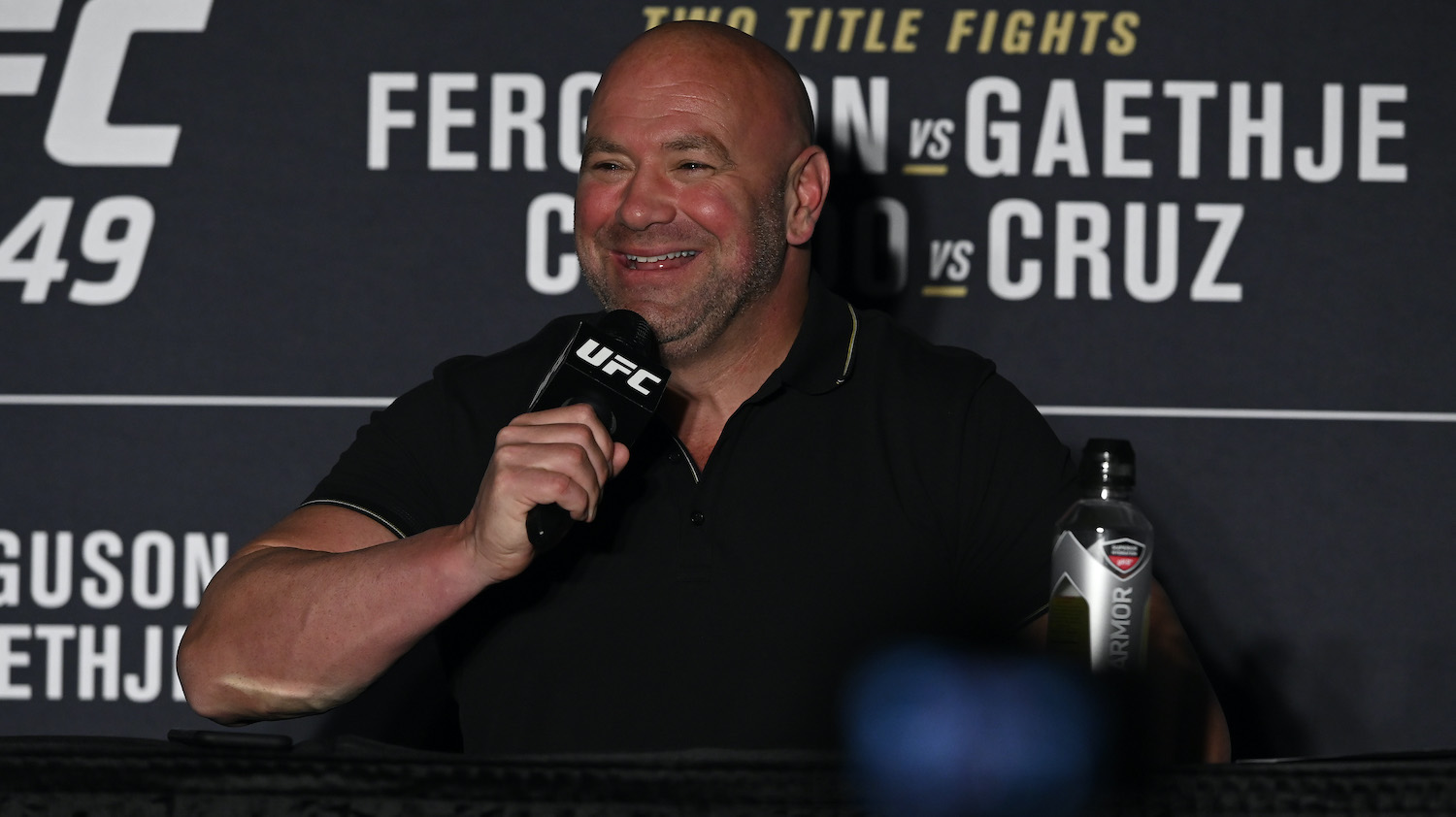The UFC has come a long way since its Wild West days, when it was founded by a pair of casino knuckleheads and boasted "THERE ARE NO RULES!" on official fight posters. Four years ago, a major private equity firm bought the promotion for $4 billion, and the UFC's exclusive TV rights arrangement with ESPN is worth $1.5 billion. It is not now and will likely never be as big as the other major American sport, but for all its crass pro wrestling chicanery, it is a serious business. And it is also now a serious business that faces an equally serious threat to its exploitative practices.
A group of former UFC fighters have been suing the UFC parent company, Zuffa, since 2014, and on Thursday, a judge granted the plaintiffs a crucial victory. Judge Richard Boulware of the Nevada U.S. District Court announced that he would grant class certification status to the plaintiffs in their antitrust case, which now opens the door for a potential 1,200 fighters to join the class-action suit.
“Today’s decision brings us one step closer to enjoying a competitive market which will allow fighters to be paid their true worth,” the MMA Fighters Association's Nate Quarry said in a statement. “By bringing this lawsuit and standing up to the UFC, we’ve had more disclosure in the last few years regarding the unfair split of revenues and coercive negotiating tactics of the UFC than in the prior 25 years combined.”
The six-year gap between the filing of the complaint and the ruling on class certification status is unusual for a suit of this nature. There is little about the UFC's business model that is manifestly "usual" in the sports world, and the chief discrepancy is the chunk of revenue that goes to fighters. The UFC brings in about a billion dollars a year in revenue, and fighters see less than 20 percent of it, which is 30 percent lower than labor's share in much higher revenue leagues like the NBA or NFL.
Unlike those other two leagues, the UFC has actual competitors that offer a roughly analogous product, like ONE FC and Bellator. However, the fighters suing the UFC have claimed that the company controls 70 percent of the labor market when you weight it by revenue, which is at the crux of the antitrust suit. As Kevin Draper of the New York Times explained, this is a monopsony case, which concerns the control exerted by one dominant buyer of a service, as opposed to monopoly power, where one firm controls the sale of a particular service.
Under president Dana White, the UFC has been the dominant force in American MMA. They have bought out several competitors, like Strikeforce, PRIDE, and World Extreme Cagefighting, and integrated their fighters onto the UFC roster. The only USA-based rival is Bellator. While Bellator pays some good fighters and gets decent TV play by virtue of being owned by Viacom, their revenue is less than 10 percent of the UFC's in the absolute best of times.
All this adds up to a UFC that has, for two decades, exercised brutal control over a labor force who risk permanent injury every time they go to work. Fighters' future with the company is largely dependent on playing ball with management, matchmakers have been accused of booking comparatively tougher fights for the final fight of a fighter's contract for leverage purposes, and fighters say they are strongarmed into signing long, restrictive deals. They don't even get health insurance. An internal document from the time of their sale to WWE-IMG said it plainly: "Fighter comp was the most asked question by financing sources, and it is a critical cost that we must actively manage."
The suit was originally filed by Cung Le, John Fitch, Kyle Kingsbury, Brandon Vera and Javier Vazquez, but thanks to today's ruling, the roughly 1,200 fighters who fought for the UFC between 2010 and 2017 can join the suit. The potential lost wages, when compared to traditional labor-management revenue splits, work out to just over $1.6 billion. Because damages are tripled in antitrust cases, the UFC is looking at a worst-case scenario of a $5 billion payout. That jolt to the revenue split enjoyed by UFC management would be a serious upending of the business model, which at its core, relies on the exploitation of fighters.
The UFC has already said it will appeal the ruling and fight every step of the way, which is reminiscent of gig companies' recent efforts to fight California law regulating them for the first time, in that any adjustment of their hoarding is an inherently existential threat. The business only works because it can get away with underpaying the people who produce their product. The UFC, though, can't pull a Prop 22 out of thin air.






